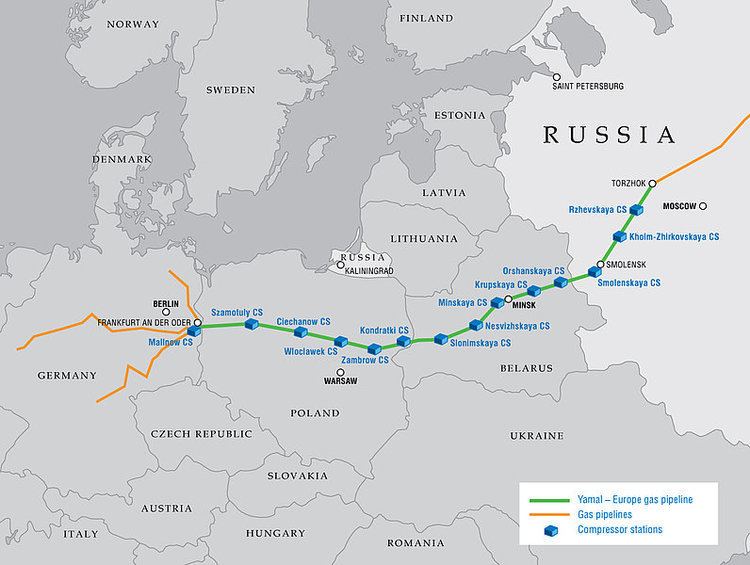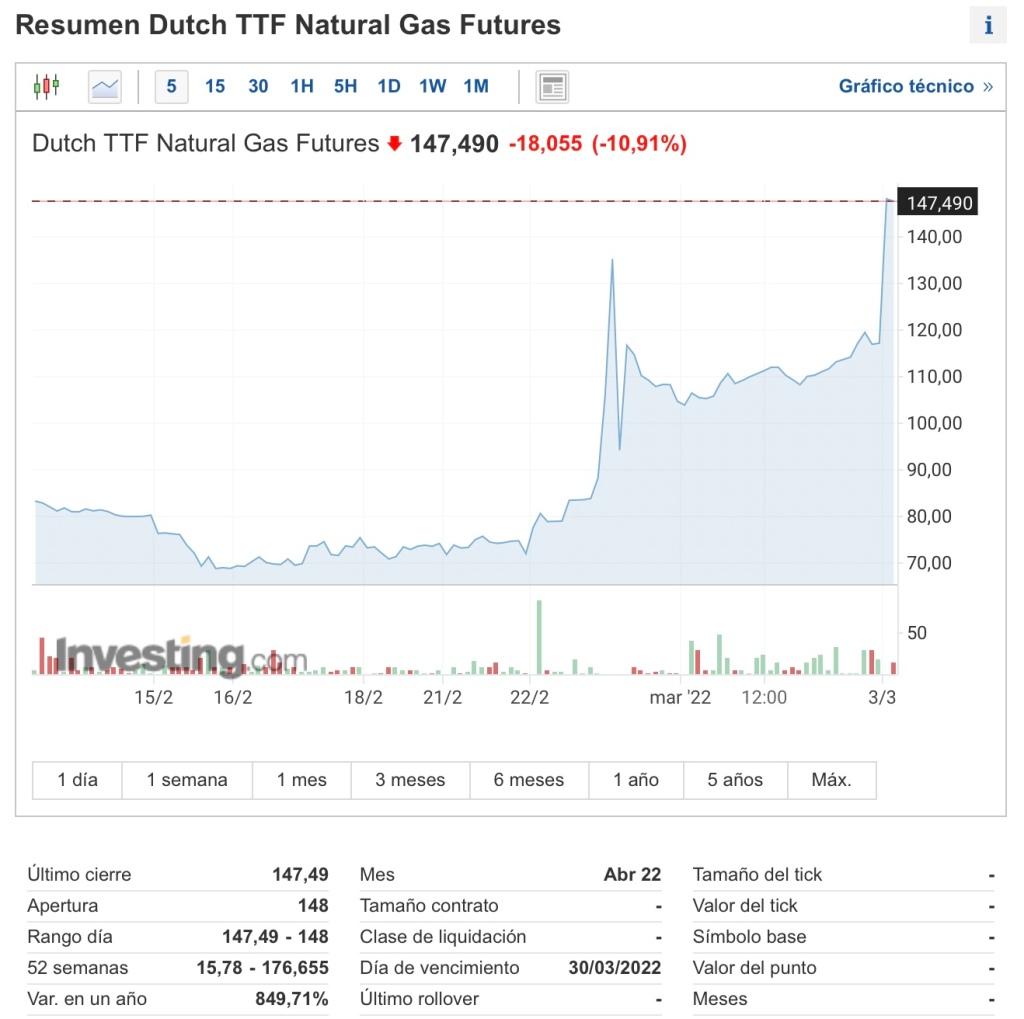The situation in Russia and Ukraine is becoming increasingly tense, under the cloud, Europe’s gas supply issue has once again become the focus of attention. Russia’s natural gas supply accounts for about 40% of the EU’s natural gas import supply, once the supply chain is disrupted, Europe is afraid to face another gas crisis.
According to energy industry analysts, it is highly unlikely that Russia will completely cut off gas supplies to Europe. In the event of a pipeline disruption, Europe could cushion the impact by increasing LNG imports and seeking alternative gas delivery pipelines.

Russian television (RT) reported on March 3.
Data tracked by pipeline operator Gascade shows that gas deliveries from Russia to Western Europe via the Yamal-Europe pipeline have been temporarily halted (resumed in the short term), while bids for two-way supplies remain.
European gas jumped on fears of energy supply disruptions due to escalating Western sanctions against Russia, while concerns about a slowdown in industrial activity sent EU carbon taxes sharply lower.
The main contract for European benchmark TTF Dutch gas futures soared more than 37% at the open, ICE UK gas futures were up 11% at one point, and ICE EU carbon emissions trading permit futures fell more than 7%.

According to the report, the biggest immediate challenge facing the EU will be replenishing its depleted natural gas stocks. While the EU could still increase its LNG imports from countries like the U.S., such purchases would be more expensive.
Compared to 10 billion euros in previous years, it could cost 70 billion euros, or seven times as much, to refill natural gas storage space to historical averages this year.
Completely replacing Russian gas is not only very expensive, but perhaps impossible to achieve.
While some European countries could import unused gas from Qatar and the U.S., and Japan and South Korea could divert some of their excess offshore gas shipments to Europe, the global gas market, and other European pipeline luck suppliers such as Algeria and Norway, are already producing and exporting at full capacity, and long-term contracts could also limit the amount of gas redirected to Europe from other parts of the globe.
According to the data analysis report, it is recommended that Europe adopt a new comprehensive, continent-wide energy strategy that reduces countries’ dependence on Russian energy and uses a systematic approach to ensure that the energy needs of all EU member states are met.